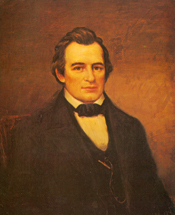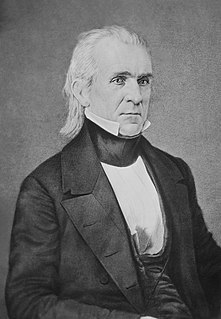
The 1838 and 1839 United States House of Representatives elections were held during President Martin Van Buren's term at various dates in different states from July 1838 to November 1839.

The 1836 and 1837 United States House of Representatives elections were held at various dates in different states from July 1836 to November 1837.

On July 2, 1815, Representative-elect Amos Ellmaker (DR) of Pennsylvania's 3rd district resigned after being appointed and commissioned president judge of the Twelfth Judicial District of Pennsylvania, composed of the counties of Dauphin, Lebanon, and Schuylkill, and before the 14th Congress' first session began. A special election was held on October 10, 1815 to fill the vacancy left by his resignation.

In the 1816 elections in Pennsylvania, David Scott (DR) won one of the two seats in the 10th district, but resigned before the 15th Congress began, having been appointed judge of the court of common pleas. A special election was held on October 14, 1817 to fill the resulting vacancy.

During the 15th Congress, there were two special elections in the 6th district of Pennsylvania, both held in the year 1818. The 6th district at that time was a plural district with two seats, both of which became vacant at different times in 1818. The first vacancy was caused by John Ross (DR) resigning on February 24, 1818 and the second was caused by Samuel D. Ingham (DR) resigning July 6.

On April 20, 1818, Jacob Spangler (DR) resigned from Congress, where he'd represented Pennsylvania's 4th district. A special election was held that year to fill the resulting vacancy.

On May 8, 1822, the last day of the First Session of the 17th Congress, William Milnor (F) of Pennsylvania's 1st district resigned. A special election was held to fill the resulting vacancy on October 1, 1822, a week before the general elections for the 18th Congress.

On May 8, 1822, the last day of the First Session of the 17th Congress, Henry Baldwin (DR) of Pennsylvania's 14th district resigned from Congress. A special election was held on October 1, 1822 to fill the resulting vacancy.

On August 26, 1825, before the first session of the 19th Congress began, James Allison, Jr. (J) of Pennsylvania's 16th district resigned. A special election was held to fill the resulting vacancy.

On January 12, 1826, Patrick Farrelly (J) of Pennsylvania's 18th district died in office. A special election was held to fill the resulting vacancy

On May 1, 1826, Alexander Thomson (J) of Pennsylvania's 13th district resigned. A special election was held to fill the resulting vacancy on October 10, 1826, the same day as the general elections to the 20th Congress.

At some point in 1826, Joseph Hemphill (J) of Pennsylvania's 2nd district resigned from Congress. A special election was held to fill the resulting vacancy.

On August 14, 1826, Henry Wilson (J) of Pennsylvania's 7th district died. A special election was held to fill the resulting vacancy on October 10, 1826.

On November 22, 1831, a special election was held in Pennsylvania's 11th congressional district to fill a vacancy caused by the death of William Ramsey (D) on September 29, 1831.

On November 4, 1836, a special election was held in Pennsylvania's 13th congressional district to fill a vacancy left by the October 30th, 1836 resignation of Jesse Miller (J).

On June 29, 1837, a special election was held in Pennsylvania's 3rd congressional district to fill a vacancy left by the death of Francis J. Harper (D) on March 18, 1837.

On March 8, 1838, a special election was held in Pennsylvania's 9th congressional district to fill a vacancy left by the resignation of Henry A. P. Muhlenberg (D) on February 9, 1838.

On October 13, 1840, the same day as the general elections for the 27th Congress, a special election was held in Pennsylvania's 22nd congressional district to fill a vacancy caused by the resignation of Richard Biddle (AM).

On November 20, 1840, a special election was held in Pennsylvania's 13th congressional district to fill a vacancy caused by the death of William S. Ramsey on October 17 of the same year.
On May 4, 1841, a special election was held in Pennsylvania's 13th congressional district to fill a vacancy caused by the death of William S. Ramsey (D) on October 17, 1840, shortly after his re-election, and before the 26th Congress had ended.



